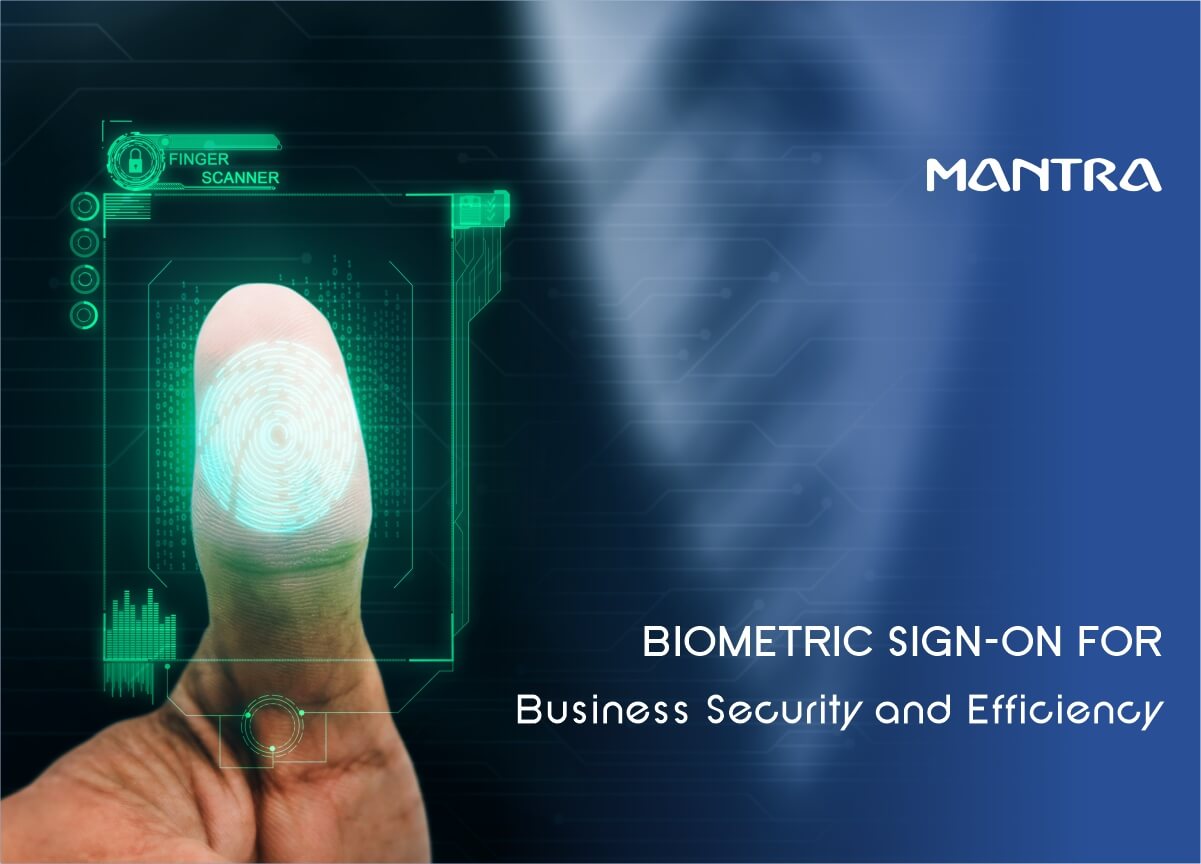Nowadays, data security and privacy are major concerns for every organization and business. Some of the major areas that necessitate a strong authentication system are data security, customer identification, personnel tracking, and access control. Where traditional passwords, access cards, and PIN systems are not enough to meet the modern security challenges arising. Here, biometric authentication has emerged as a reliable authentication method for business development.
Biometric authentication is needed, according to the statistics. According to Vanson Broune's research, 14.89% of decision-makers in the financial services sector believe that passwordless authentication is essential for companies to adopt to achieve the greatest level of authentication security. Also, an overall breach costs approximately $2.19 million every year. On the customer end, 74% of consumers regarded physical biometrics to be the most secure method for digital identity verification. So, we will look at the different applications of biometric authentication and their advantages for organizations in this article.
Why is Biometric Authentication the Future of Business?
Biometric authentication offers several advantages over traditional authentication methods such as passwords or PINs. For example, it eliminates the need for remembering passwords or carrying tokens, making the authentication process faster and more convenient. Furthermore, biometric authentication is much more difficult to hack than traditional authentication methods, as the traits used for verification are unique to an individual.
Streamlining authentication through biometrics will increase the productivity of employees and the customer service part of the business. It eliminates the need for periodic password resets and the risk of password sharing among employees. So biometrics in general are increasing the ease of doing business and enhancing the customer experience. Let's check the different ways biometric authentication is used in businesses.
Different Ways Biometric Authentication Can Be Used in Business
Businesses can utilize biometrics as a versatile tool to check employee attendance and identify customers for different services. By providing recommendations for preferences and enabling customized experiences, biometric authentication will significantly improve customer-centric services. Biometrics can be applied by businesses in the following ways:
1 Employee authentication:
Employees can be authenticated using their biometrics when accessing corporate resources like servers, databases, or networks. Businesses may eliminate the risk of unauthorized access by utilizing biometric Sign-Ons because each person's biometric features are distinctive. This can assist businesses in protecting sensitive data and preventing data breaches.
2 Customer authentication:
To verify users' identities when they use online services like online banking, e-commerce websites, or social media accounts, biometric authentication may also be employed. Businesses can make sure that only authorized users can access their services by employing biometric Sign-Ons. This can help prevent fraud and identity theft. Businesses can give the right service to the right customers with the help of biometric sign-on.
3 Physical access control:
Physical access to restricted places like server rooms, data centers, or labs can be controlled via biometric authentication. Businesses can improve their physical security measures by implementing biometric Sign-Ons to make sure that only authorized people can access these locations. Physical access control through biometrics ensures that only authorized individuals have access to sensitive areas, thereby ensuring data security and confidentiality and improving the integrity of the business.
4 Time and attendance tracking:
Employee time and attendance can be monitored with biometric authentication. Businesses can prevent buddy punching and the falsification of attendance records by implementing biometric Sign-Ons. Businesses can use this to guarantee effective staff performance and accurate payroll processing.
5 Compliance with regulations:
Businesses can use biometric authentication to comply with rules like HIPAA, PCI DSS, or GDPR. Businesses must comply with these rules by having strong authentication mechanisms in place to protect the privacy of sensitive data. Businesses can make sure they are adhering to these regulatory requirements by adopting secured biometric Sign-Ons.
Benefits of Biometric Authentication for Businesses
1 Improved Security:
The increased security provided by biometric Sign-On solutions is one of its main advantages. There is always a chance that passwords, PINs, or smart cards could be stolen or hacked. Biometric Sign-On systems add an extra layer of protection by leveraging unique physical or behavioral features to verify a customer's identification in Multi-Factor Authentication (MFA). In MFA, without the proper biometric information, a hacker cannot access the system even if they have the user's password.
2 Increased Efficiency:
Biometric Sign-On solutions increase authentication process effectiveness in addition to security. It can take a while to authenticate using a traditional password, especially if users must input several passwords for several applications. By employing a single biometric identity for all apps, Biometric Sign-On Solutions streamline the process and shorten the time needed for authentication.
3 Cost-Effective:
Biometric Sign-On solutions may first seem costly, but over time they end up being more economical. Password-based authentication needs a lot of IT management and maintenance, and the expenses of password resets and account lockouts can add up quickly. In the long term, biometric sign-on solutions are more cost-effective since they do away with these expenses.
4 Enhanced User Experience:
Solutions for biometric sign-on also improve user experience. Users may find password-based authentication annoying, especially if they lose their password or need to enter multiple passwords for various applications. Users will find the authentication process to be more convenient and less frustrating with biometric sign-on solutions.
Conclusion:
The efficiency and security of enterprises can be significantly impacted by the adoption of biometric Sign-On technologies. Biometric Sign-On Solutions add an extra layer of protection, boost productivity, save costs, improve user experience, and aid businesses in complying with regulations. As part of their security strategy, businesses should seriously consider using biometric Sign-On solutions.

uiluill
NIce
ReplyHarsh pandey
Pls suporrt me
Replyrushikesh jagtap
Thank you
Reply